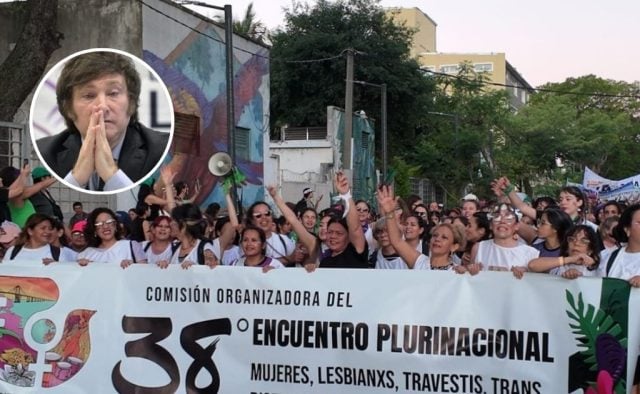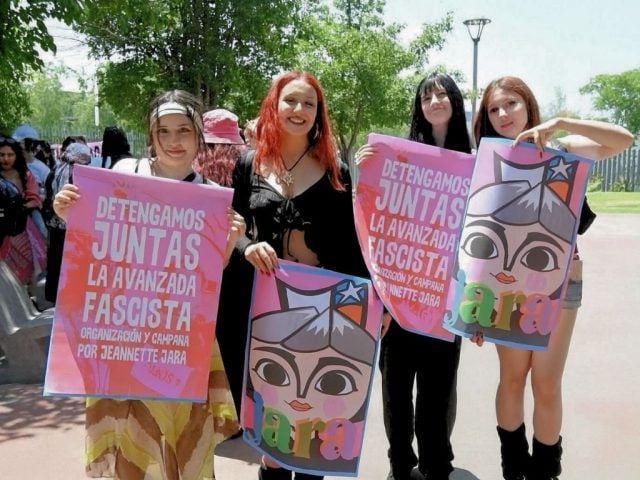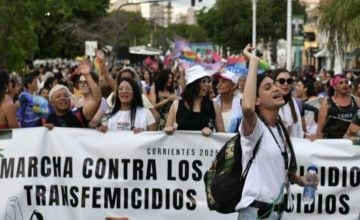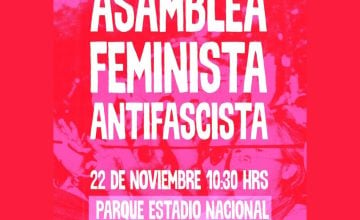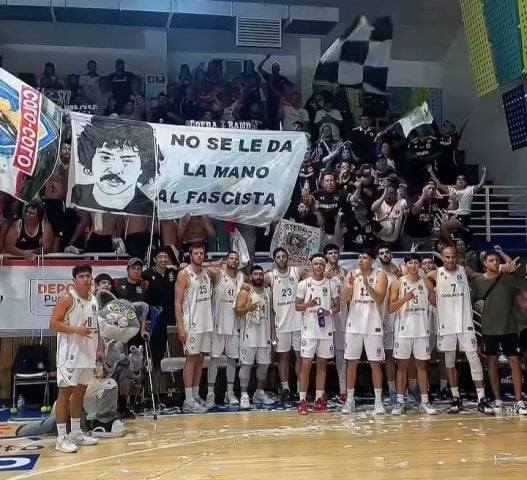Original article: Mujeres y disidencias le rayan la cancha a Milei: masiva marcha contra el avance fascista
Women and Gender Minorities Stand Against Milei: Massive March Protests Fascist Advances
This weekend, the streets of Corrientes, Argentina, became the backdrop for a substantial march protesting the rise of fascism, where women and gender minorities rallied against President Javier Milei.
The mobilization was part of the 38th Plurinational Gathering of Women, Lesbians, Transvestites, Trans, Bisexuals, Intersex, and Non-Binary individuals, taking place from November 22 to 24.
Over these three days, workshops, cultural and artistic activities, marches, and interventions addressed injustices and concerns, while fostering social organization.
This gathering serves as a political space to discuss the conservative advance in the context of an anti-feminist government led by the far-right president, amid unsuccessful boycott attempts by conservative groups.
This year’s edition brought forward demands against femicide, calls to end hate speech, opposition to attacks on gender policies, as well as concerns about exploitation and lack of funding in relation to the Paraná River.
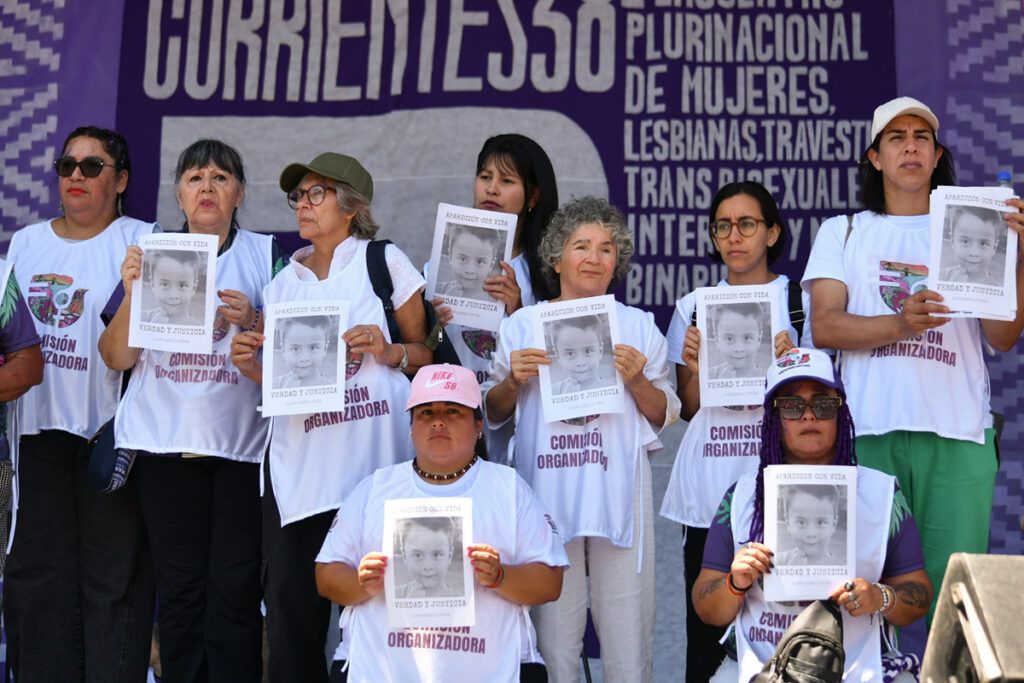
Participants also demanded the safe return of Loan Peña, a five-year-old boy who disappeared in June 2024 in Corrientes, whose whereabouts remain unknown.
The gatherings, which originated in 1986 in Buenos Aires, are no longer called «national» and «women’s» because, for several years, the name has evolved to the «Plurinational Gathering of Women, Lesbians, Transvestites, Trans, Bisexuals, Intersex, and Non-Binary,» a combination of terms that encapsulate diverse experiences and reflect significant victories achieved by feminist struggles, according to Página/12.
The march held on Saturday marked one of the largest feminist and transfeminist mobilizations in recent years in Corrientes.
The event began with the reading of a document highlighting the cultural identity of the Guaraní people, local history, and the tradition of struggle that defines women, minorities, and dissenting groups in the region.
As such, it recognized the memory of those who have historically fought for dignity, truth, and justice, reinforcing the political and emotional significance that these gatherings have built over decades.
The document illustrated a landscape marked by the reduction of state areas, cuts to social programs, and the defunding of essential support services under the administration of «libertarian» Javier Milei.
Among the issues mentioned were the elimination or weakening of support mechanisms such as community kitchens and victim support lines, characterized as a regression in public gender and diversity policies.
Furthermore, the increase in violence fueled by institutionalized hate speech resulting in direct aggression against women, sexual minorities, and the LGBTIQ+ community was denounced.
In fact, the slogan: «What a moment, what a moment, despite everything, we held the Gathering,» gained new meaning after two years of persistent attacks from Milei’s far-right government against the transfeminist movement.
Concerns were also raised regarding the ruling party’s intention to modify the definition of femicide in the penal code—an initiative that, if realized, could lead to lighter penalties for offenders and jeopardize essential legal tools, as reported by Diario La Voz del Chaco.
Solidarity with Palestine
The mobilization featured the wiphala flag of indigenous peoples, who voiced their objections to extractive policies and the looting of their communities by various governments. Palestinian flags were also present, expressing strong condemnation of the genocide perpetrated by Israel in Gaza, which has resulted in over 69,000 deaths, mostly women and children.
The call for a «Free Palestine» filled the march, with flags bearing red, green, black, and white.
Tilda Rabi, president of the Argentine-Palestinian Federation, warned about the critical humanitarian situation in the enclave.
“Winter is coming to Palestine; there is no food, no structures to withstand the cold temperatures, and not to mention what is happening in the West Bank and East Jerusalem, where raids, destruction of crops, and ongoing persecution of individuals are taking place, characterized by the occupants as the resistance of the Palestinian people,” she stated.
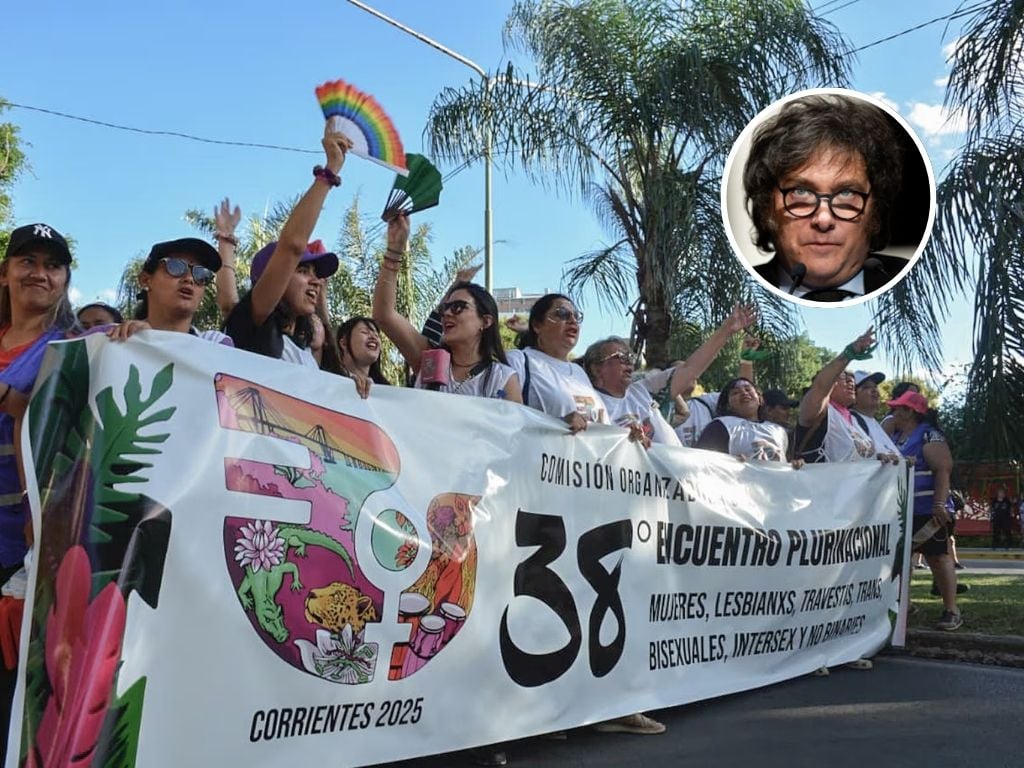
Pulse Against Milei’s Government and the Fight Agenda
The 38th Plurinational Gathering of Women, Lesbians, Transvestites, Trans, Bisexuals, Intersex, and Non-Binary people, which was planned a year in advance, unfolded against a backdrop of stark political confrontation. The crowd not only celebrated four decades of feminist organization but also denounced the policies of Javier Milei’s government.
Throughout the weekend, workshops overflowed with participants, outlining an urgent agenda for action. The Antifascist and Antiracist Pride March that took place on February 1—responding to Milei’s antifeminist statements—was highlighted as a «turning point» in federal organization. Additionally, there were calls to organize a major federal action for the 50th anniversary of the coup d’état, a rejection of labor reform, and recognition of caregiving as labor, along with widespread alarm regarding potential setbacks to abortion rights, as reported by Página/12.
One particularly concerning issue was the «false report» project advanced in Congress by Senator Carolina Losada of the Radical Civic Union (URC), targeting women who allegedly report gender-based violence not because they are experiencing it, but out of «anger» or «resentment.» In this regard, Yama Corin from the feminist organization Mundanas and a protective mother explained that workshops focused on building support networks, professional networks, and political connections to empower those facing similar issues.
At the heart of the march, popular feminism showcased its strength. «Caring is work,» women shouted with pots in hand and aprons on, emphasizing that without care, there is no life. Norma Morales, Deputy Secretary of the Union of Workers and Workers of the Popular Economy (UTEP), argued that Milei’s government «does not benefit from an organized people; it does not benefit from women being the voices and caretakers of our community.»
“The right fears us; they don’t know the power of a cooking pot,” she emphasized.
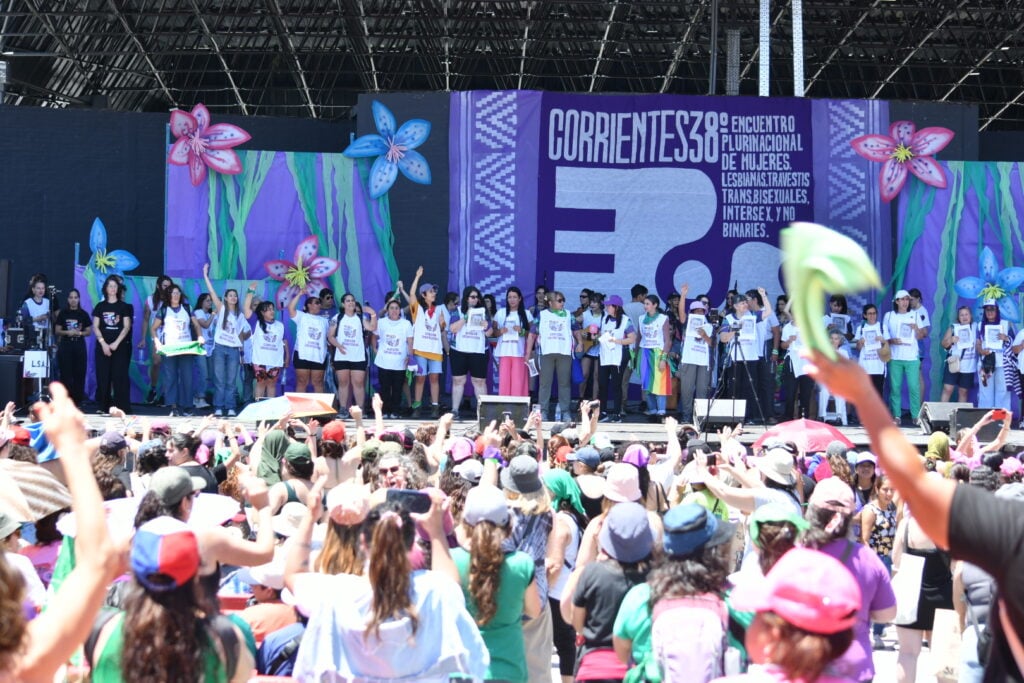
Life Stories That Give Meaning to the Fight
As the march progressed, Nirvana Silvero shared a photo on her phone capturing the roots of her activism: she holding a “Not One Less” sign with her young daughter’s handprint imprinted like a stamp. That girl is now 12, and according to her mother, does not identify as a feminist.
When asked by Página/12 about her daughter’s perspective, Nirvana shared a deeply personal story: “My separation after ten years with my partner happened thanks to feminism; suddenly, I realized that what was happening at home weren’t ‘arguments,’ it wasn’t ‘character,’ it was gender-based violence. And that a blow was something I should never tolerate again. That wake-up call was the starting point,” she recounted.
By 9 PM, the mobilization reached Paseo Arazaty. Flags gathered on the beach, where many dipped their feet into the Paraná waters to cool off. From the stage, Nirvana celebrated alongside the Organizing Committee and women who had participated in the 1994 Gathering, the last time Corrientes hosted it.
At the end of the revelry, with the energy of the day still resonant, Nirvana completed the story with her daughter, revealing the true legacy of the struggle: “When we separated, one day my daughter said she didn’t want to go with her father, and while he insisted, she stood her ground and said she didn’t want to because that was her right. I learned about rights at 30, and she learned at 5; my daughter may not identify as a feminist, but she takes every lesson to heart and knows how to assert her rights, and that, even though she isn’t a feminist, fills me with pride every day when I see her stand up for them.”
The march, like the Gathering as a whole, made it clear that the movement not only persists but strengthens, weaving networks and sowing future, “drawing the line” against a government that finds its main obstacle in popular organization.
*Featured photo: Enrique Rojo. Izquierda Diario
